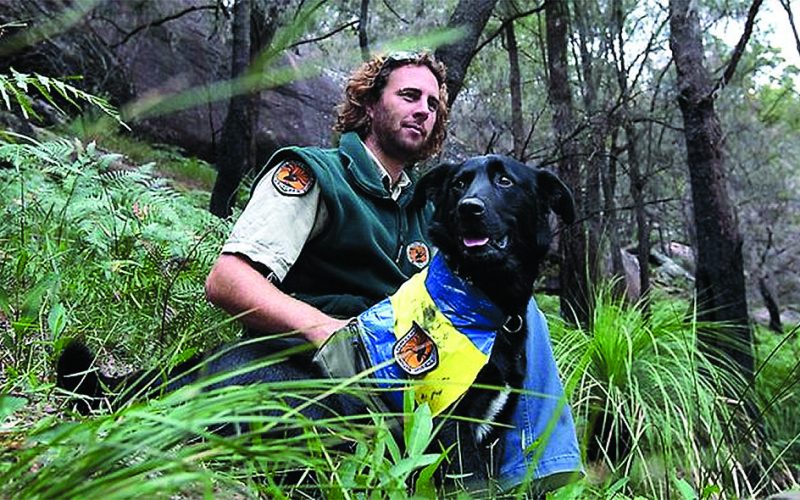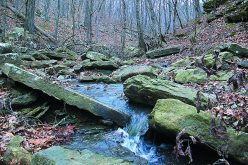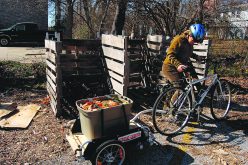
Photo By Digital Telegraph
A member of the Australian Wildlife Service using a black lab to search out endangered plants, animals and often times protecting herds from predators.
By Amanda Bancroft
Recently, I wrote about how pets can help us live more sustainable lives by generating electricity with their exercise wheels, recycling greywater, becoming toilet-trained and much more. But I saved the best for last, and wanted to focus an entire column on man’s best friend.
Dogs are receiving increasing publicity for their worldwide conservation work, and Jaymi Heimbuch’s post in TreeHugger last month is an inspiration for what we could be doing here in Arkansas.
In “Amazing Dogs Working to Save Species and Ecosystems,” Heimbuch shares photographs, videos and stories of dogs in action. In Kruger National Park, Belgian Malenois have been trained to track poachers and protect rangers. The Australian Wildlife Service uses an English springer spaniel to find and track the population of burrowing penguins. One dog “can cover an area in one hour that would normally take 10 humans four hours to cover.” An Italian breed of sheepdog is used to bond with flocks of Australian penguins and gannets in order to protect them from predators, just like they would bond with and protect a herd of sheep! In Montana, Working Dogs for Conservation trains their dogs to find invasive plants in large areas of grassland. World Wildlife Fund is using dogs to sniff out tiger scat to monitor endangered populations in Southeast Asia. They can even smell whale scat in miles of ocean, helping researchers study 85 Orcas off the Washington coast.
Dogs are helping giant anteaters in Brazil and Cheetahs in Africa. So why not endangered species and native plants in Arkansas?
The article received relevant criticism from readers who pointed out that dogs can undermine conservation efforts in a variety of ways, such as injuring or killing species like koalas. It’s true that allowing dogs to roam free can pose a huge challenge, and even devastate sensitive ecosystems. The overpopulation of our pets contributes to increasing numbers of strays. It isn’t the dogs that are the problem, but problem owners with untrained dogs.
Since Ripples will continue to work on conservation issues, such as protecting habitat for native species and reducing the number of invasive non-native plants, adopting a dog and training them to help us here in Arkansas would offer a lot to our, and others, work. According to the Arkansas Natural Heritage Commission, it is unknown whether there is a population of ivory-billed woodpeckers in our state. Perhaps a dog could be trained to find them faster than a human team and track their population recovery. Dogs are super-talented pets that can do so much more than play fetch and protect chickens from the next raccoon attack.
February is Spay/Neuter Awareness Month, and Fayetteville Animal Services is offering free surgeries for cats and dogs on Fri., March 1st, and Friday, March 15. For more information, call 479-444-3456.
Ripples is a blog connecting people to resources on sustainable living while chronicling their off-grid journey and supporting the work of nonprofit organizations. Read more on this topic and others at www.RipplesBlog.org.










